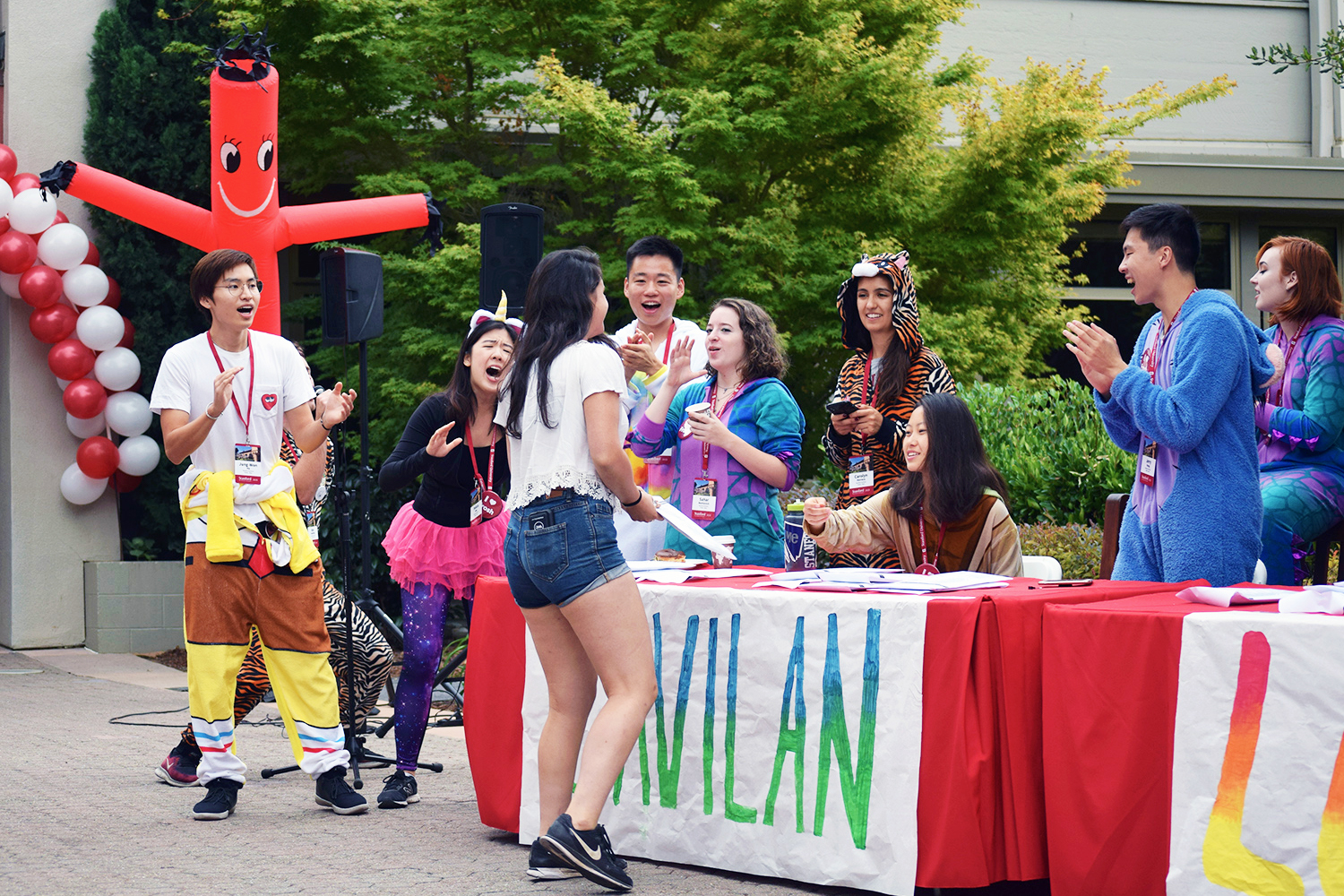Much of Stanford’s Class of 2025 spent their final year of high school in online classes due to the COVID-19 pandemic. Now, they’ve wrapped up their first year on Stanford’s campus.
Some students didn’t know what to expect from campus life before arriving, since they weren’t able to attend college tours during the pandemic. Julia Gershon ’25 is one such student. “I’m from Michigan and I really never traveled [to] this side of the country,” she said.
Although campus reopened in fall 2021 after a little over a year of online classes, the Omicron wave of the pandemic led Stanford to move classes online for the first three weeks of winter quarter. The few benefits from taking online classes and an earlier matriculation made some students rethink taking a gap year; however, they had no regrets since they still got to have the traditional Stanford frosh experience the following year.
“So the gap year was never really on the table for me money-wise,” Gershon said. Since she avoided Stanford’s online year, she says she “still got the Stanford experience.”
Scott Hickman ’25 is another student who does not have any regrets about not taking a gap year before enrolling. “There were definitely some headaches, with campus closing again at the start of the winter quarter and clubs needing time to get back up to speed and find in-person venues,” he said. “Nonetheless, I was able to gain a unique Stanford freshman experience that I will never forget.”
The Stanford freshman experience means different things to different students. For Hickmann, playing games like Twilight Imperium with friends in-person was an important part, helping them form bonds. “Now we have unique stories to reference between us months later.”
For Gershon, one moment of her first year stood out. Gershon’s high school prom was held at a football field, where normal prom activities like dancing were restrained. She contrasts that with her experience at Stanford. “I remember this particular moment with my friends [at] our [dorm boat party] in San Francisco, staring at the Golden Gate Bridge at sunset, music playing and being able to dance,” she said. “It just felt like I was getting to do a lot of the things I missed at high school.”
Jason Lin ’25 says his unforgettable freshman year memory was riding a motorized couch down a road with his friends. They had fit electric skateboards under the couch, cutting the wood at the Product Realization Lab. “It was so fun, except the skateboards kept sliding from under the couch, so [it was] a bit sketchy too,” said Lin.
Aside from the opportunity to make fun memories, some well-liked characteristics of Stanford include its diversity and campus life. Hickmann says that “diversity on the campus shines” when it comes to infrastructure and organizations, from maker labs to sports facilities to dining halls and clubs.
Furthermore, he has met people with a variety of backgrounds and interests. “Some of my friends are physicists, entrepreneurs, musicians, poets and oftentimes a combination of more of these. They come from all four corners of the world, so we got to share cultural and family traditions with one another.”
Gershon is a fan of the famous student tradition of fountain hopping. “I think it is a very fun way to feel a little bit mischievous,” she said, “especially going there after a big science test with friends.” Meanwhile, Lin mentions the campus’ runnable and bikeable environment as one of his favorite things.
Of course, Stanford hasn’t lived up to every expectation students in the class of 2025 had upon entering the University. Gershon says the neighborhood system is her least favorite part of Stanford and “makes it difficult to meet and connect with people” outside of one’s dorm. And according to Hickmann, there’s a lack of diversity in building names — “Everything is called Arrillaga,” he said.
But despite these challenges, the students said their freshman year was most of all an opportunity to grow “It made me more extroverted and more comfortable with being around people I really admire or being in new situations,” Gershon said.
Lin says he learned how to “be deliberate about friendship” in order to navigate the effects of the new neighborhood system, the pandemic and the size of the student body.
Overall, Lin’s expectations for freshman year were satisfied. “I met incredible classmates. Huddled around a carpet in my room, sipping tea, we would tell each other stories about our backgrounds and upbringings,” he said. “So many people love to just ‘do things together,’ like go on runs or start tinkering projects. That’s been great.”
